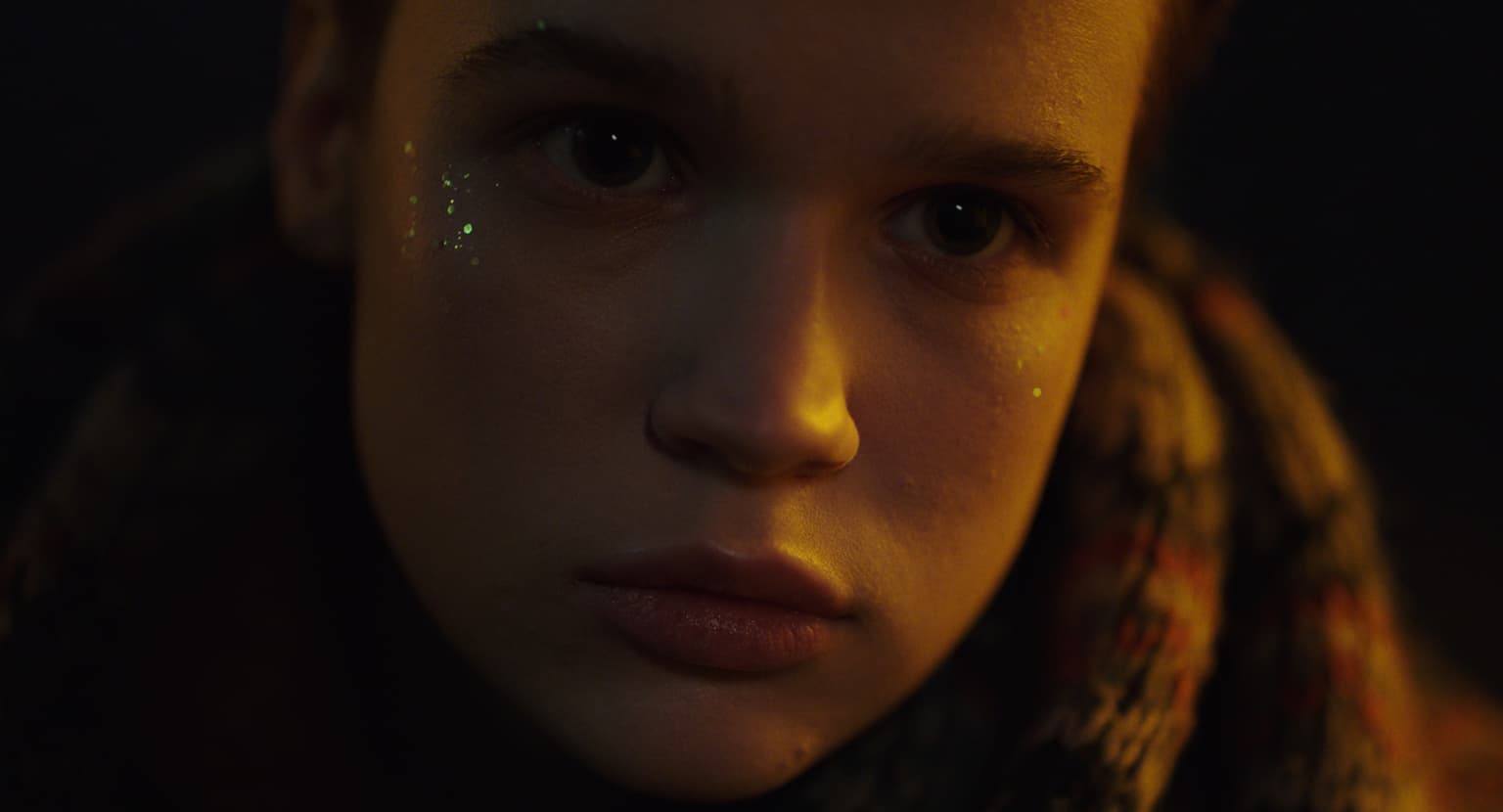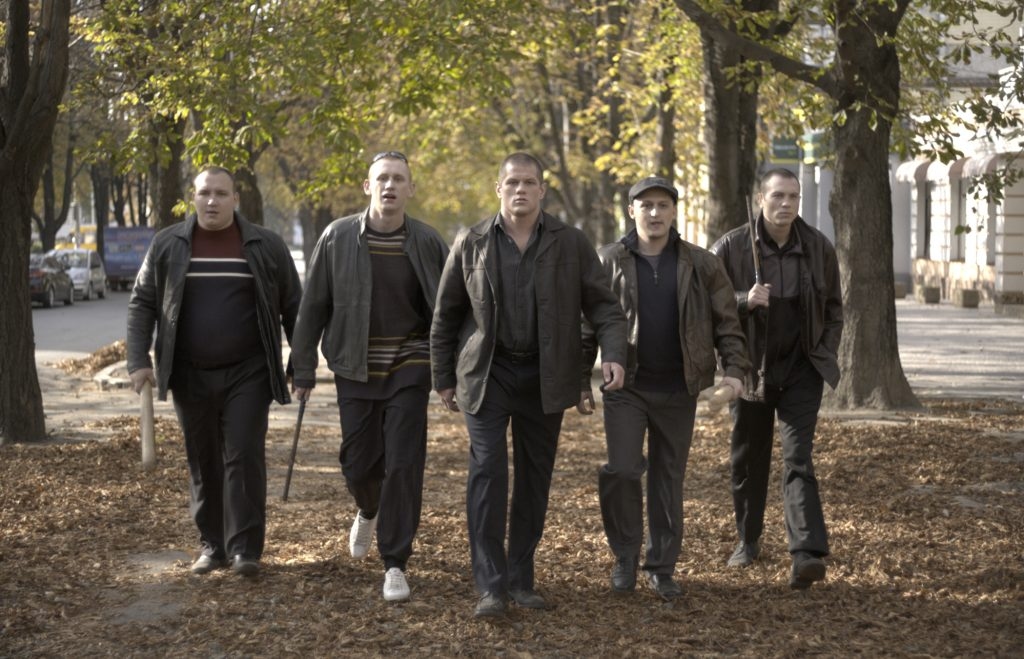War, crime, teenage angst: Best Ukrainian movies of 2021

Despite the pandemic production challenges and rollback of government support, Ukrainian cinema continued to make gains this year on the momentum built by the previous management of the State Film Agency.
Russia’s war against Ukraine continues to preoccupy the minds of Ukrainian filmmakers but there were also movies that examined old and recent history, as well as shared cultural and existential experiences. Our selection includes the seven best Ukrainian movies that premiered or were released in cinemas in 2021. Only one of the selected movies, "Bad Roads," is currently available online with English subtitles.
'Bad Roads' (drama, war)
There is no better movie about ordinary people caught in the crossfire of Russia’s war than this directorial debut by playwright and screenwriter Natalya Vorozhbit.
Though it did not make the shortlist as Ukraine’s contender for the Oscars, the film received an award at the Venice Film Festival in the Critics’ Week program when it premiered there in 2020. It only became available to a general audience with its 2021 theatrical release.
Based on Vorozhbit’s research in Ukraine’s eastern region of Donbas, "Bad Roads" tells five stories about its residents and Ukrainian soldiers living on both side of the front line. It will soon be available to stream on HBO GO in Central Europe, albeit with one remarkable story omitted – a dark comedy-drama about a Ukrainian medic who’s driving her lover’s body out from the war zone.
OLL.TV | Sweet.tv | Takflix (with English subtitles)
'War Note' (war documentary)
This chronicle, woven from personal videos and bodycam footage of Ukrainian soldiers, is the most captivating documentary experience of Russia’s war against Ukraine.
The viewers see events unfold in first person as if they are the ones loading the weapons, saving people from shelling or seeing themselves in the mirror in full combat gear. But the most bizarre are moments outside of fighting, because the soldiers’ behaviors, relationships and sense of humor are different when their lives may end at any moment.
"War Note" was put together by Roman Liubyi from the Babylon 13 documentary film community. It premiered at the Docudays UA film festival in 2020, winning three awards. But in 2021, the state failed to license it for wide theatrical release in Ukraine, because it didn’t meet the quota for Ukrainian language use (many of the soldiers speak Russian in the film). Still, in October, "War Note" was picked up by the Takflix online cinema.
'Stop-Zemlia' (romance, drama)
The first feature film by young documentary director Kateryna Hornostay is a time machine transporting each viewer to their teenage years, helping rediscover first love, sexuality and intimate friendship. It’s the kind of art that makes you feel alive.
That is because there is so much honesty in how the film was made. Hornostay used an acting laboratory to find her amateur teenage actors and developed the script and their characters as she got to know them. The result is a true-to-life story about modern Ukrainian youth that also feels timeless.
The film premiered in May and took the highest award in the youth section of the Berlin International Film Festival. In Ukraine, it won multiple prizes, including best film at the Odesa Film Festival and the Ukrainian Film Critics Awards. It will be released in cinemas on Jan. 20 in Ukraine.
Trailer | In the U.S.: Amazon, Apple TV, GooglePlay, Vimeo

'Rhino' (crime, drama)
There is a rhino in the room that has to be acknowledged when talking about this film: the main role is played by Serhiy Filimonov, an ultra-nationalist leader of the Honor youth group and former member of the far-right political party National Corps. Moviegoers have to decide if they are willing to support the casting of this controversial individual by buying a ticket (I got mine as part of a festival pass).
But then Filimonov is also the best thing about this movie: his stiff physical acting is perfect for the titular gangster character who preys on the weak to survive in this carefully reconstructed version of the tumultuous 1990s Ukraine. Perhaps Filimonov, who in the past had violently dispersed peaceful rallies for human rights, can relate.
This casting decision is Oleg Sentsov's -- he directed the film soon after being released from captivity as a political prisoner in Russia. Sentsov has done well to reflect on that part of Ukrainian history, though his vision doesn’t differ much from how a plethora of Russian movies paint the era. Still, it’s an exciting and sometimes terrifying ride with a confident and uncompromising director at the height of his strength, much like a ride with the Rhino in his black BMW.
The movie premiered at the Venice International Film Festival in September and had a Ukrainian premiere in October. It will be released in theaters on Feb. 17 in Ukraine.
'Babyn Yar. Context' (archival documentary, war)
The principal Ukrainian director, Sergei Loznitsa, is true to his method with this documentary: he made an artistic provocation that makes no pretense of being objective, but serves perfectly to stimulate a debate and raise awareness about the memory of the Holocaust in Ukraine. His filmmaking skills can’t be denied: Loznitsa unearthed never-before-seen archival footage and brought it to life with masterful editing, restoration and sound design.
But viewers should be mindful that the movie does not provide a comprehensive understanding of the World War II events that led to the Nazi mass killings at the Kyiv Babyn Yar ravine of mostly Jews, but also Roma, Ukrainians, prisoners of war, psychiatric patients and others. For one, Loznitsa starts the film in 1941 with locals in Lviv greeting the German forces, omitting the history that would explain that they were not welcoming anti-Semites but possible liberators from the Red Terror of Soviet occupation.
In a caption about the Babyn Yar shootings, Loznitsa says that they were carried out “without any resistance from the local population.” But it’s hard to imagine how the Kyiv locals could resist when they didn’t know exactly what would happen – to both Jews and Ukrainians just days after the Soviets had abandoned them and the Nazi marched in.
There are plenty of similar nuances that can mislead unprepared viewers, especially those influenced by Russian propaganda. One can only hope that the viewers will read more about this history before or after watching the film.
'Reflection' (drama, war)
After the festival success of his dystopian "Atlantis," Ukrainian director Valentyn Vasyanovych returns to examine the consequences of Russia’s war in "Reflection." "Because the war isn’t over,” he once told this journalist.
"Reflection" is a story about a Ukrainian surgeon, who after being captured and tortured by the Russian forces in eastern Ukraine, tries to find a new purpose and rebuild relationships with his family after release.
It is the first Ukrainian film since the country’s independence to be featured in the main section of the Venice International Film Festival. It competed with movies by famous directors like Paolo Sorrentino and Pedro Almodóvar. The film will be released in Ukrainian cinemas in 2022.
'107 Mothers' (drama)
While "Rhino" and "Reflection" did not receive any prizes at the Venice film festival in 2021, one Ukrainian film surprisingly pulled it off. "107 Mothers," co-produced by Ukraine, Czechia and Slovakia, took the festival’s Best Screenplay prize in the Orizzonti section that focuses on new trends and expressive language in film. It will be released in Ukrainian cinemas in 2022 as “Censor,” its alternative title used in some European countries.
A feature film debut by the Slovakian documentary director Péter Kerekes, "107 Mothers" is set in Ukraine and features Ukrainian actors. It tells the story of a young mother who gives birth at a correctional facility in the southern city of Odesa, surrounded by other women – prisoners, nurses and guards. The screenplay, co-authored by the Slovak writer Ivan Ostrochovský is based on real-life stories that Kerekes has recorded in one prison in Odesa.










